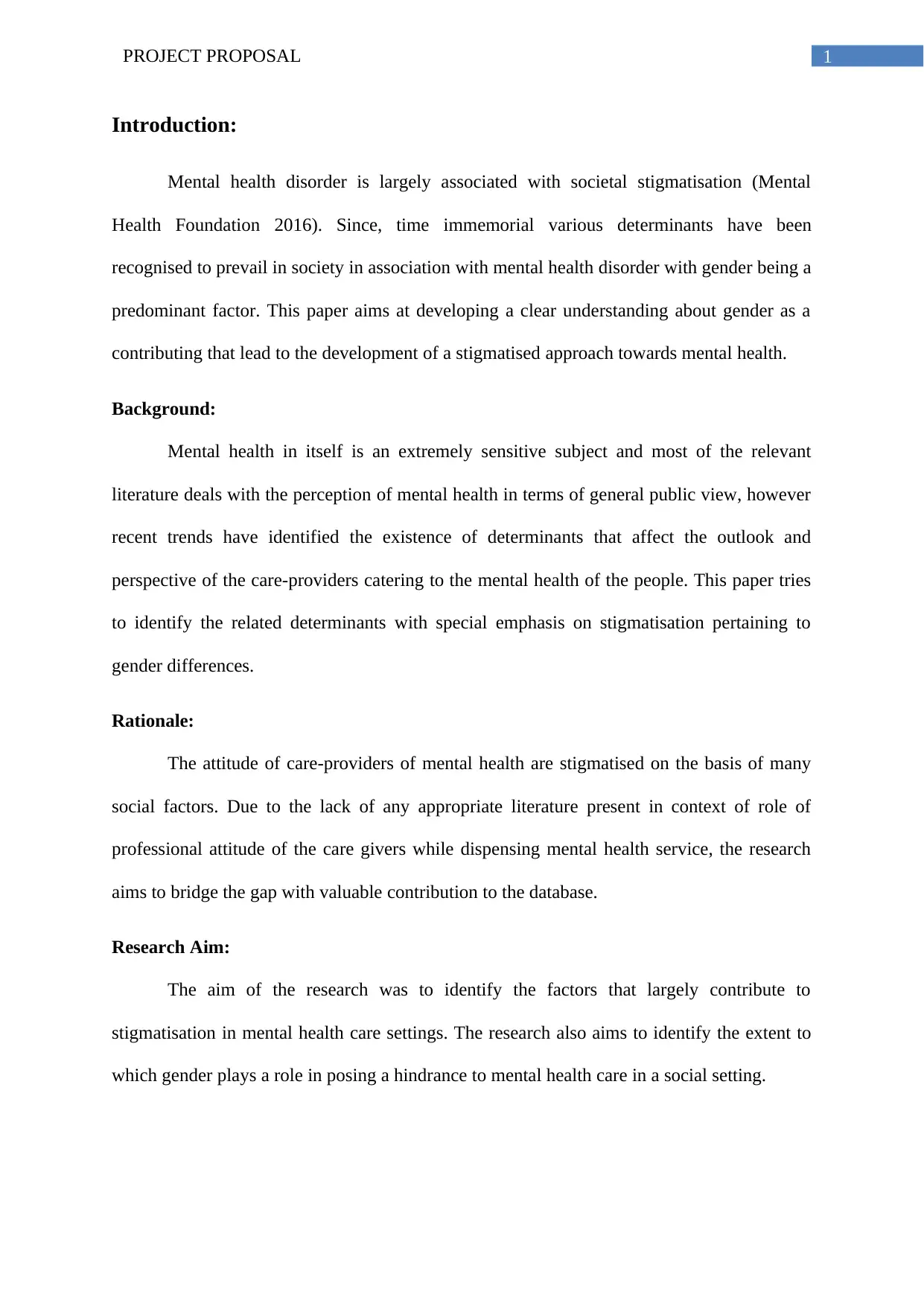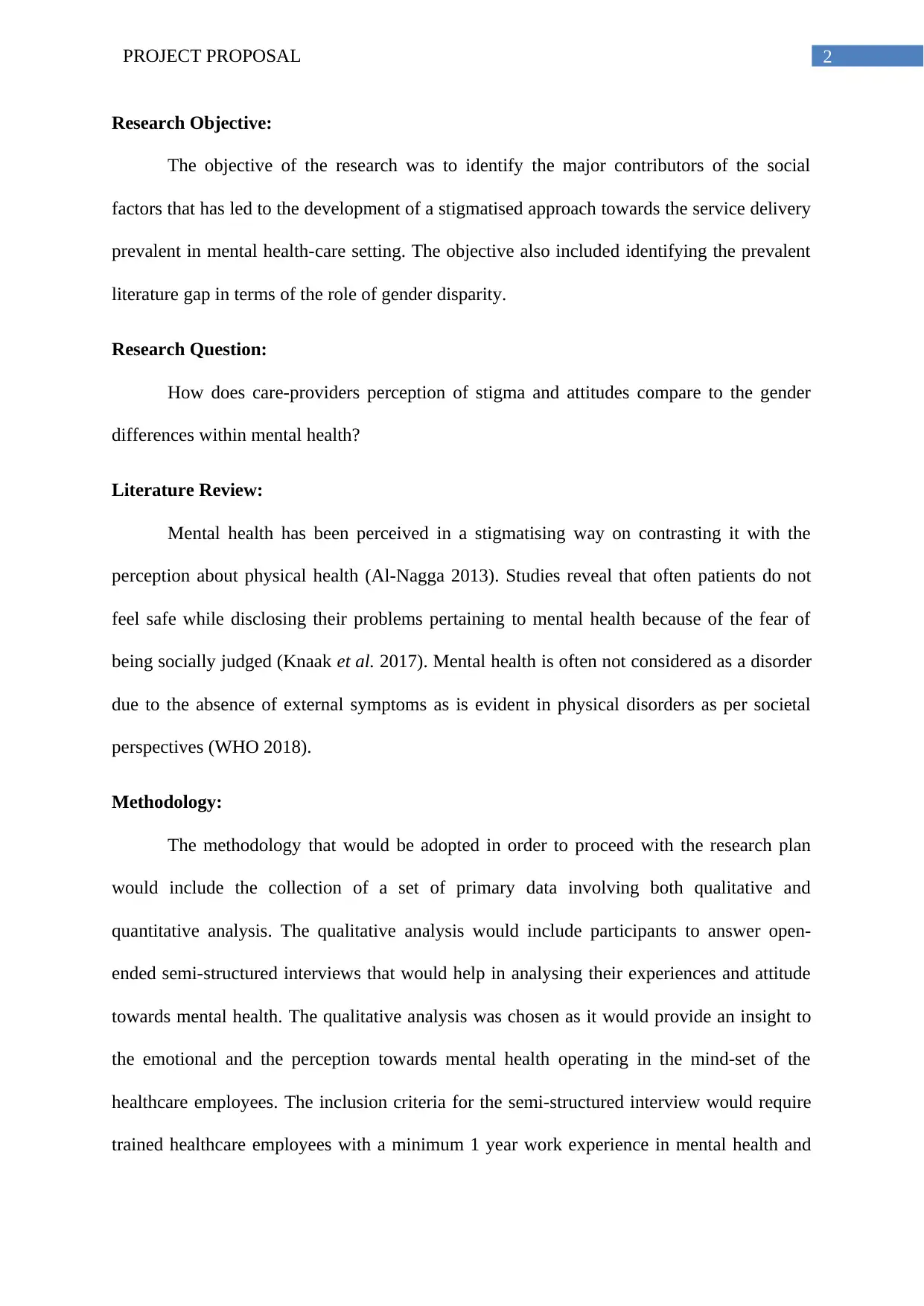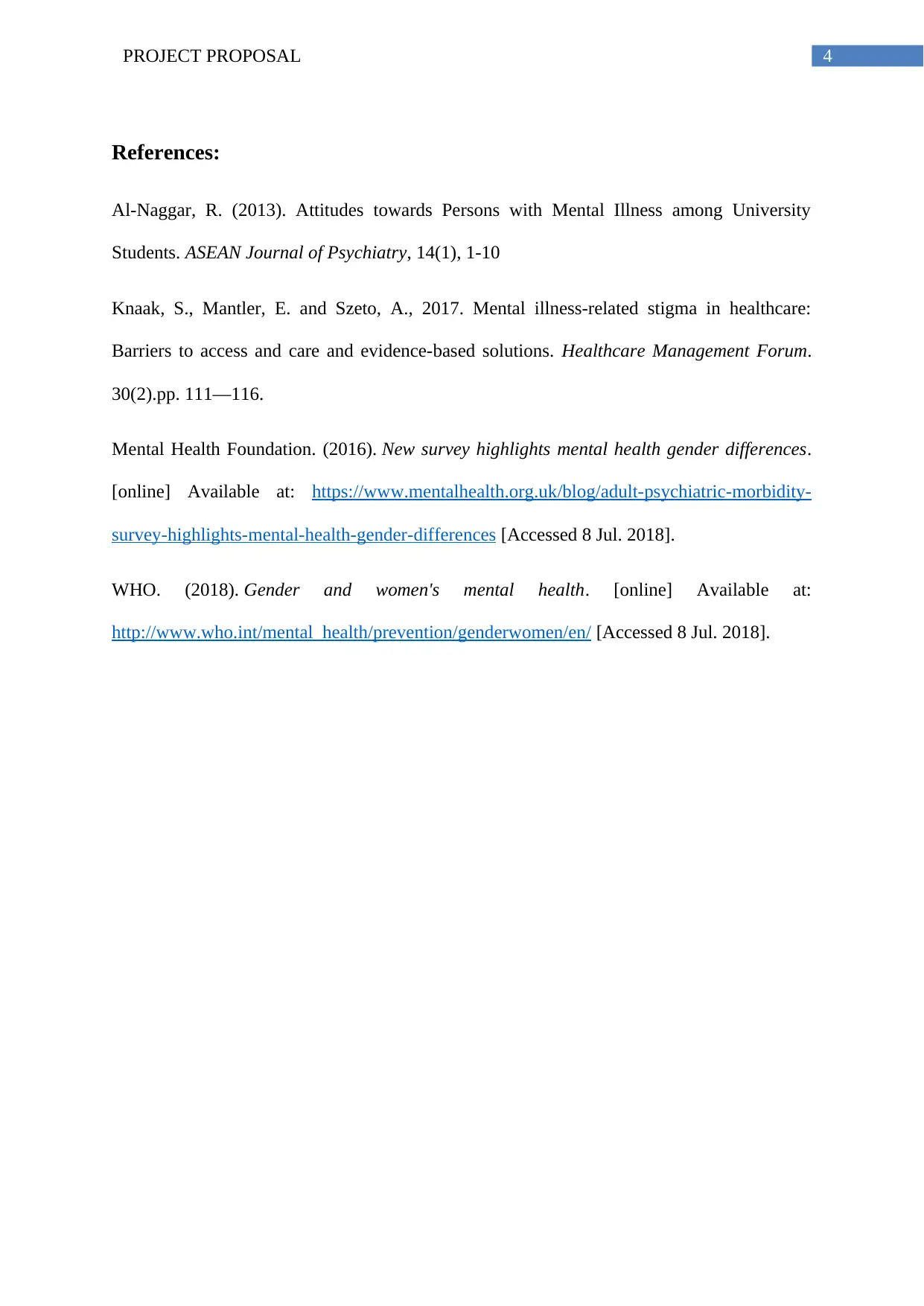Project Proposal: Mental Health Stigma and Gender Differences
VerifiedAdded on 2023/06/10
|5
|716
|466
Project
AI Summary
This project proposal, submitted by a student, delves into the critical issue of mental health stigma, examining how gender differences influence the perceptions and attitudes of healthcare professionals. The introduction highlights the societal stigmatization associated with mental health disorders, with gender identified as a key determinant. The proposal aims to bridge the gap in existing literature by analyzing the attitudes of care providers and identifying the factors contributing to stigmatization within mental healthcare settings. The research objectives include identifying social factors that lead to stigmatized approaches and exploring the role of gender disparity. The methodology involves qualitative and quantitative data collection through semi-structured interviews with experienced healthcare employees. This approach seeks to understand their experiences and attitudes toward mental health, providing valuable insights into the emotional and perceptual aspects of the issue. The proposal outlines the research questions, literature review, and methodology to address the complexities of mental health stigma.
1 out of 5












![[object Object]](/_next/static/media/star-bottom.7253800d.svg)